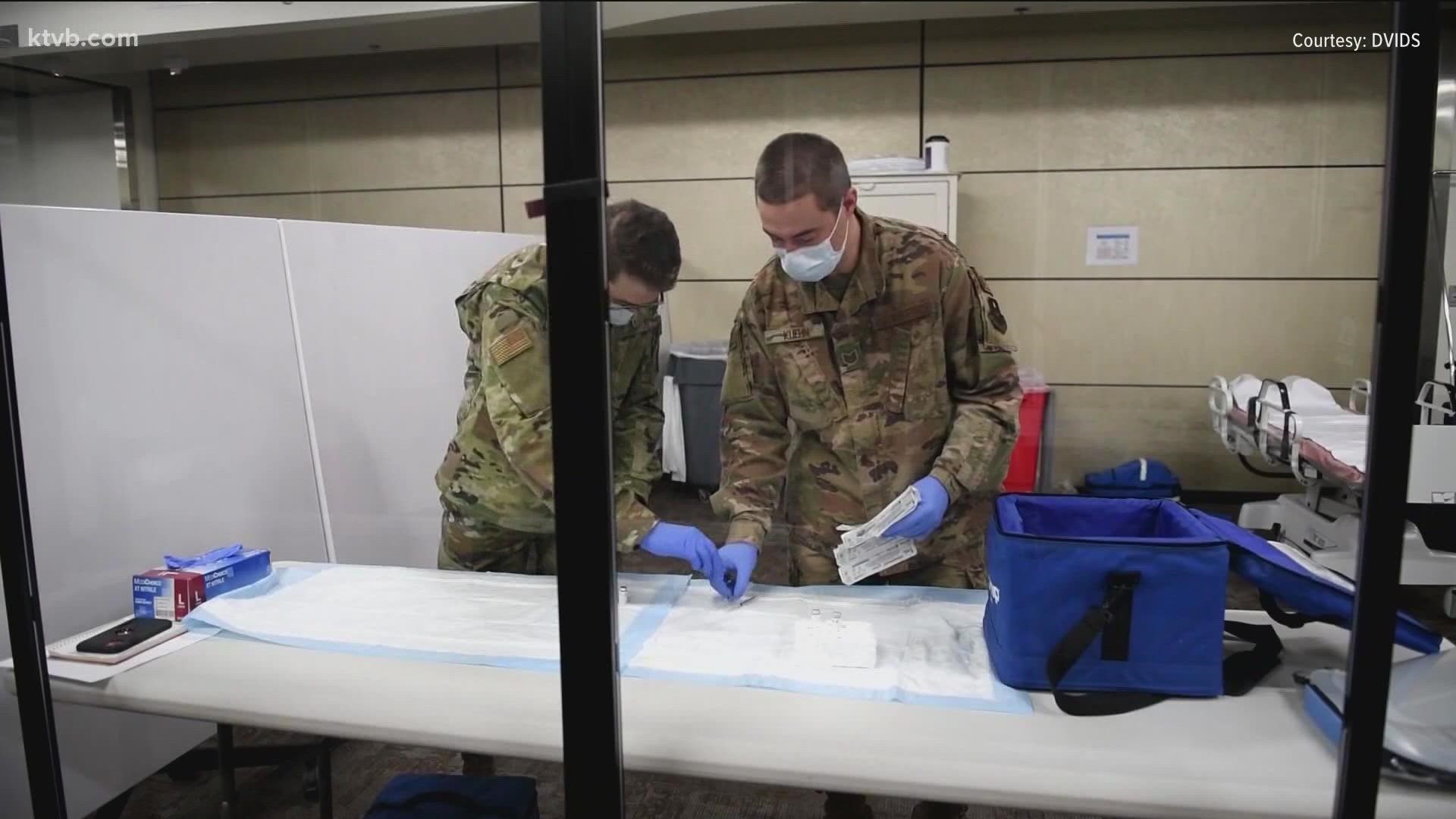BOISE, Idaho — All active-duty soldiers in the U.S. Army are expected to be fully vaccinated by Wednesday, and Army Reserve and National Guard units need to be fully vaccinated by June 30, 2022, under a federal mandate.
When the Department of Defense (DoD) made that announcement in September, the Army Surgeon General said it's "a matter of life and death" for soldiers, their families and communities. He called the coronavirus case count and death toll "concerning," adding that mandatory vaccinations are a "health and readiness priority."
Service members can be exempt from being vaccinated if they have a legitimate medical, religious or administrative reason.
People who refuse will be counseled, and if they still don't comply, they'll be disciplined or discharged.
Each branch set a different deadline; the Air Force's was November 2, 2021. The Air Force discharged 27 active-duty members for refusing to get vaccinated against COVID - the first to be discharged over the Pentagon's vaccine mandate.
The next hurdle: the military's Reserve and National Guard, whose pay comes from the federal government.
In November, Defense Secretary Lloyd Austin ordered all members to get vaccinated or lose pay and be banned from drills and training. Missing drills can mean demotion or discharge.
The Air National Guard deadline already passed on December 2, while the Army National Guard doesn't have to be fully vaccinated until June.
More than 400,000 people serve in America's National Guard, including thousands here in Idaho.
The Idaho National Guard currently ranks 34th in the country for vaccination rates. Hundreds of members haven't been vaccinated against COVID-19.
Lt. Col. Chris Borders told KTVB that 86% of Idaho's roughly 1,300 Air National Guard airmen are at least partially vaccinated. Seventy-six percent of the 3,100 people in the Idaho Army National Guard have at least one dose.
Combined, almost 300 medical and religious waivers have been submitted. The guard is still processing those, meaning no one has been discharged yet. Aside from a handful of medical waivers approved, Borders said they haven't made decisions on the requests.
The Pentagon directed the National Guard to process people for discharge if they refuse the vaccine. However, it will be handled on a case-by-case basis, and failure to comply with the requirement doesn't necessarily mean and doesn't necessarily mean they will be discharged.
"This very well could have negative consequences both in terms of recruiting and retention. We stand to lose personnel over this mandate," Lt. Col. Borders said. "The adjutant general of Idaho is the discharge authority for Idaho National Guard personnel. It is his intent to make this a non-punitive issue. So vaccine status will have no bearing on the characterization of discharge. But those people could be facing discharge.
"Each request will be looked at on a case-by-case basis. He’s going to look at the overall quality of the soldier's and airman's service," Borders added.
They're still waiting on direction from the National Guard Bureau on whether discharge will be honorable or not.
While governors control states' National Guard units at home, but guard members are often deployed for federal missions overseas. Borders said the Pentagon can enforce the mandate because the vaccine is a DoD "readiness requirement" for guard units to keep their federal recognition.
"The numbers continue to grow in the Idaho National Guard. The vaccine rate is continually climbing. So people are coming to terms with it and choosing to get vaccinated," Borders told KTVB.
Meanwhile, NBC News reports governors from five states sent a joint letter to Austin asking him to reconsider the mandate for the Guard. The governors argue it's beyond the DoD's authority.
Facts not fear: More on coronavirus
See our latest updates in our YouTube playlist:

